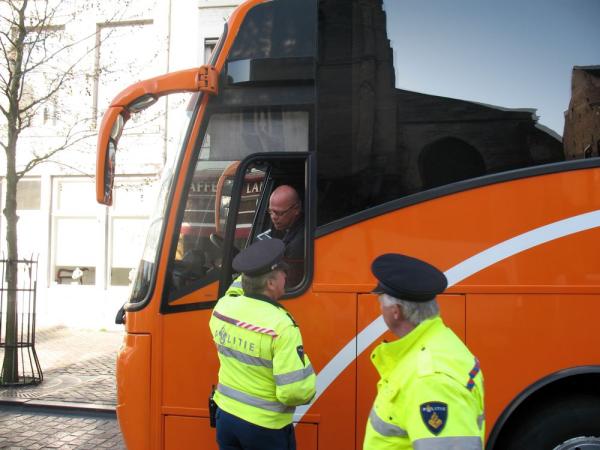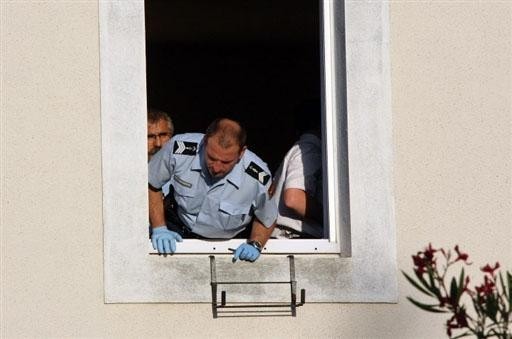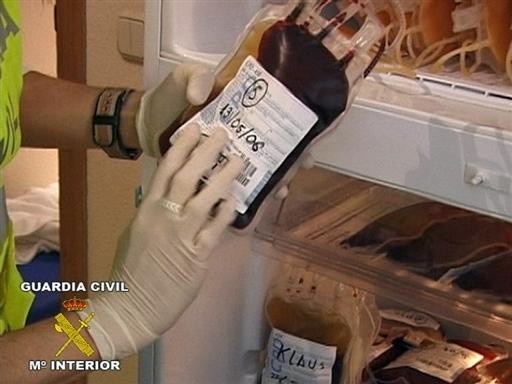Police involvement crucial in anti-doping, says McQuaid
USADA dossier supported by federal investigation




At one point during Pat McQuaid's discussion of the UCI decision to uphold the sanctions imposed on Lance Armstrong by USADA, the Irishman listed off the major doping cases that had taken place during his seven-year presidency of cycling's governing body.
McQuaid's litany stretched from Roberto Heras' positive test at the 2005 Vuelta a España to USADA's 2012 findings against Armstrong by way of Operacion Puerto (2006), Floyd Landis (2006), Michael Rasmussen (2007), Alexandre Vinokourov (2007), the CERA positives of 2008, Alberto Contador (2010), Ezequiel Mosquera (2010) and Steve Houanard (2012).
Yet even in the face of such a depressingly repetitive roll call, McQuaid was keen to stress that the UCI had made progress in the fight against doping on his watch, citing the existing biological passport and the forthcoming steroid and urine profile. McQuaid admitted, however, that the greatest strides in the fight against doping over the past decade have come about thanks to the involvement of the police and criminal justice systems.
In particular, McQuaid noted that USADA's damning report of Lance Armstrong's doping would not have been possible without the work carried out by FDA investigators as part of their inquiry into possible federal fraud at the US Postal Service team.
"When you look at this case, you see quite clearly that without the involvement of the police, it wouldn't have happened," McQuaid said. "You can see the number of tests done on these eleven or twelve [US Postal] athletes by the UCI and USADA, they were all negative. It wasn't until the intervention of the federal agents in the United States, when they called these riders in, sat them down and put a gun and a badge on the table and they told them ‘you're facing a grand jury and you must tell the truth,' that those riders broke down. And many of them did break down. Like criminals when they're being questioned, they break down.
"The UCI doesn't have those powers, no more than USADA has those powers. Most of the major busts in doping these days are done by the police. David Millar was caught by the police as well."
McQuaid insisted that the lie of the land has changed over the past decade, with more and more countries implementing specific legislation against doping and sporting fraud, but claimed that during Armstrong's reign as Tour de France champion, there was not the same collaboration between police and anti-doping authorities.
Get The Leadout Newsletter
The latest race content, interviews, features, reviews and expert buying guides, direct to your inbox!
"The assistance of government and police authorities is very important but you must remember that back in 2000-2001 very few governments had laws against doping," McQuaid said, perhaps forgetting that it was the work of the French police that triggered the Festina Affair of 1998. In 2000, French investigators also opened a preliminary inquiry into the use of Actovegin at Armstrong's US Postal Service team, even before the substance was formally prohibited by the International Olympic Committee.
However, McQuaid said that the UCI was now working more closely with police, and he hinted that the governing body would take action against those implicated in the Padua-based inquiry into Dr. Michele Ferrari's doping activities once it received the relevant documentation from Italian investigators.
"Now the UCI has relationships with police. In our legal department, there's one person designated to collaborate with police in European jurisdictions, when we have information that can help them or they have information that can help us," he said. "That does go on, and on a daily basis. We've also developed relationships with other agencies.
"The UCI has always been to the forefront of the fight against doping, but having said that, the UCI doesn't have police powers."

Barry Ryan was Head of Features at Cyclingnews. He has covered professional cycling since 2010, reporting from the Tour de France, Giro d’Italia and events from Argentina to Japan. His writing has appeared in The Independent, Procycling and Cycling Plus. He is the author of The Ascent: Sean Kelly, Stephen Roche and the Rise of Irish Cycling’s Golden Generation, published by Gill Books.